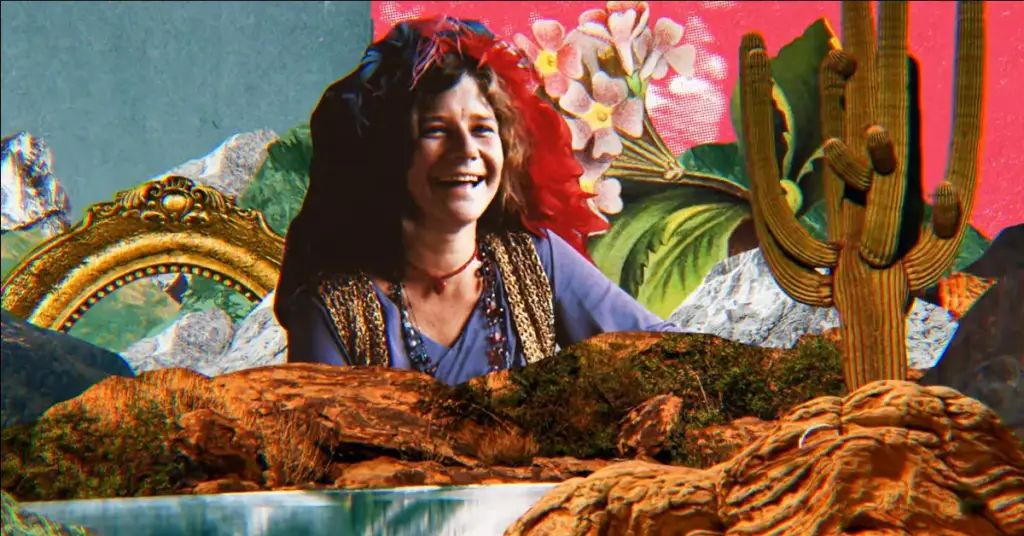Janis Joplin – “Me and Bobby McGee”: Freedom, Heartbreak, and the Last Great Ride
Few songs feel like a journey, but Janis Joplin’s “Me and Bobby McGee” takes you on one—and by the time it ends, you’re not the same.
Originally written by Kris Kristofferson and Fred Foster, “Me and Bobby McGee” had already been recorded by a few artists before Joplin laid it down. But when Janis sang it, she didn’t just cover the song—she claimed it. Her version, released posthumously in 1971, became her only #1 hit and a haunting swan song for a voice that could shake the sky or soothe a soul.
The Story: Two Drifters, One Road
At its core, “Me and Bobby McGee” is a road song, a tale of two wanderers hitchhiking across the American South, bound by the open road and a shared hunger for freedom. But freedom, as it turns out, comes with a cost.
“Freedom’s just another word for nothin’ left to lose…”
That line—now iconic—hits like a bittersweet truth bomb. In Joplin’s hands, it doesn’t feel philosophical. It feels lived.
Her delivery captures every flicker of joy and every shadow of regret. You can feel the sun on their backs as they sing the blues in Baton Rouge, and you can hear the ache when Bobby fades from view. She’s not telling a story—she’s remembering it.
The Voice: Ragged, Real, and Radiant
Janis Joplin’s voice was like no other—a perfect storm of gravel, gospel, and guts. On “Me and Bobby McGee,” she lets it breathe in the beginning, almost conversational. But as the song builds, she uncages it.
By the final choruses, she’s howling with all the force of someone trying to sing back the past—trying to hold on through sheer will and raw sound. It’s joyous. It’s mournful. It’s alive.
It’s also heartbreaking, because we know something Janis didn’t: she wouldn’t live to see the song’s success. She recorded it just days before her death in October 1970, making it one of the last pieces she ever gave to the world.
The Arrangement: Country Soul Meets Blues Rock
The backing track keeps it loose and rootsy—a blend of country strumming, bluesy rhythm, and rock attitude. There’s nothing flashy here, and that’s what makes it work. The music gives Janis the space to stretch out and make the song her own.
The arrangement subtly shifts beneath her—from laid-back campfire vibe to full-throttle soul climax—mirroring the emotional arc of the lyrics. By the end, it’s a cathartic release, equal parts celebration and surrender.
Cultural Impact: A Legend Cemented
“Me and Bobby McGee” hit #1 on the Billboard Hot 100 in March 1971, making Joplin only the second artist in history to top the chart posthumously (after Otis Redding). The song became inseparable from her legacy.
It’s been covered by many since—Kenny Rogers, Waylon Jennings, Dolly Parton—but none match Janis’s intensity. Hers isn’t just the most famous version—it’s the definitive one.
In many ways, it captured everything Janis stood for: freedom, passion, vulnerability, and the belief that music could set you free, even when life couldn’t.

Final Thoughts
“Me and Bobby McGee” isn’t just a hit.
It’s a farewell, a time capsule, and a masterclass in emotional storytelling.
It’s the sound of one of rock’s greatest voices pushing beyond limits, chasing down one last ride through the heart of America.
Somewhere out there, Janis is still singing for Bobby.
And we’re still listening, hearts wide open, engines running.


Facebook Comments